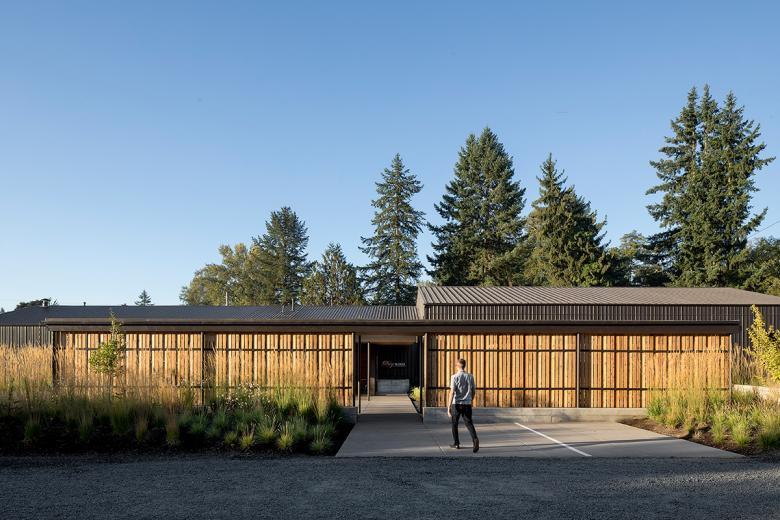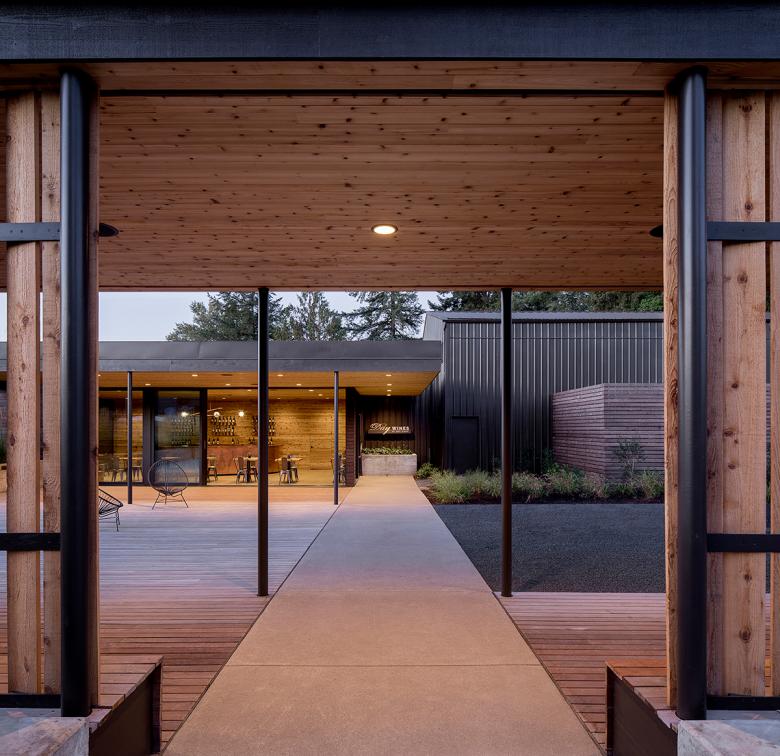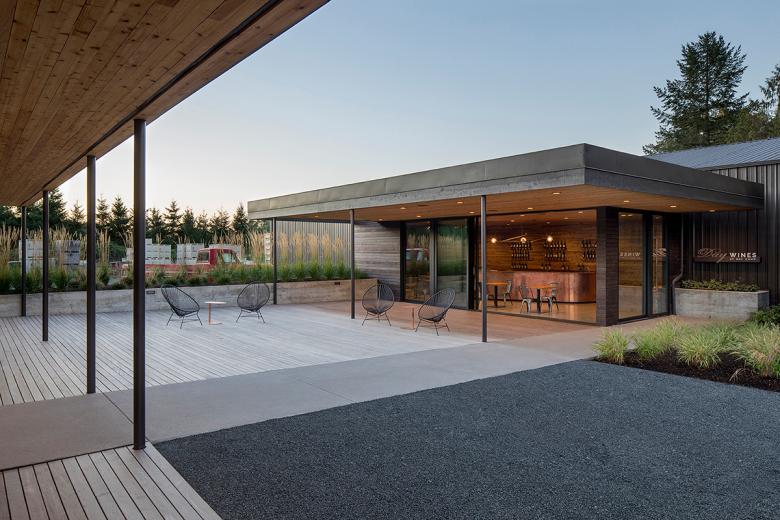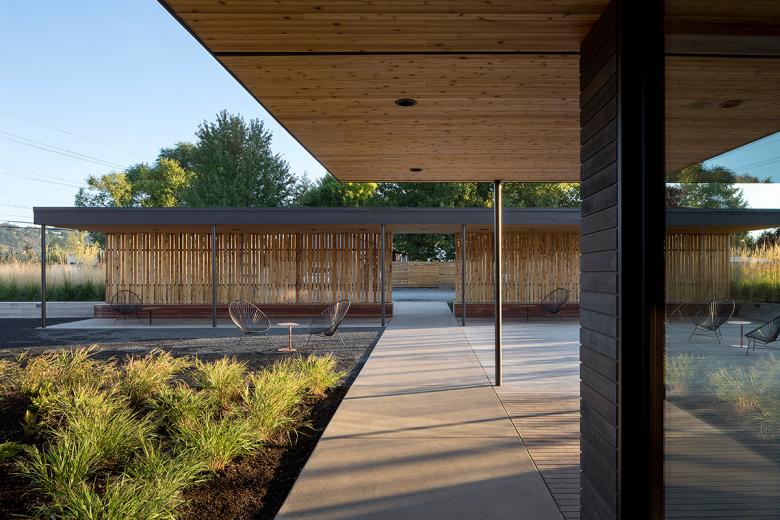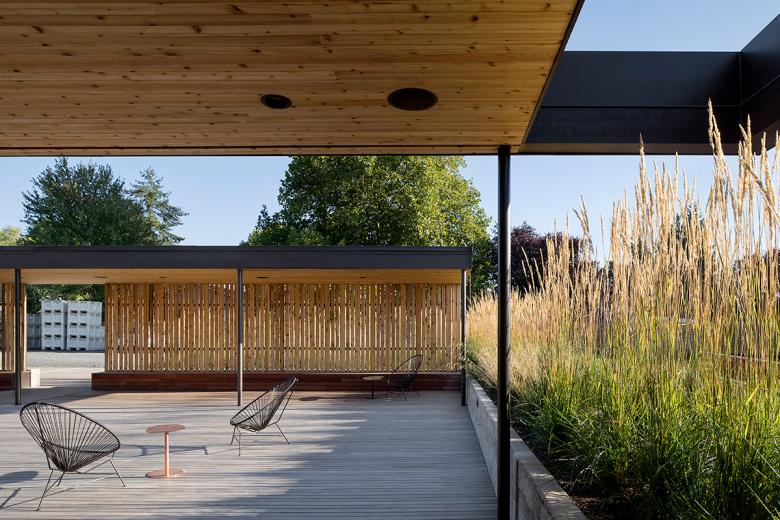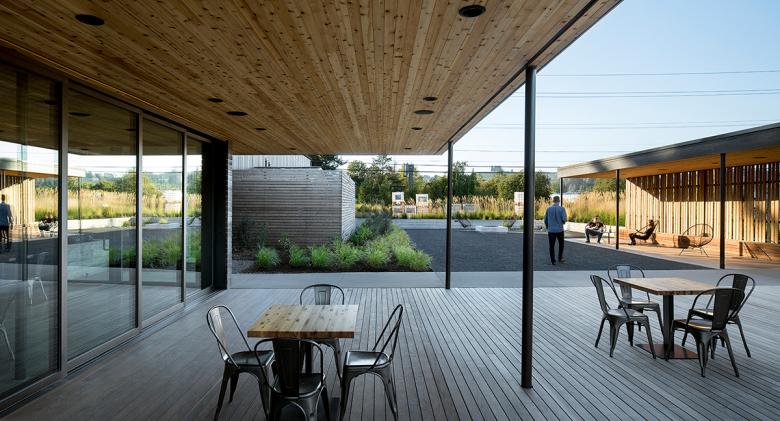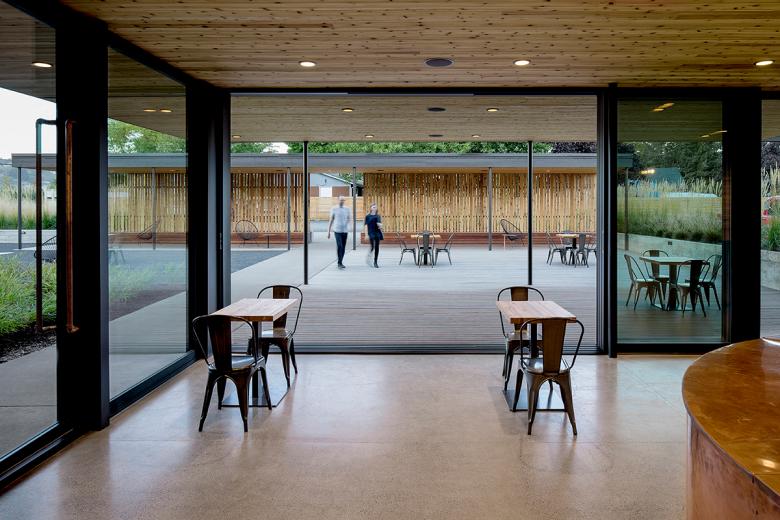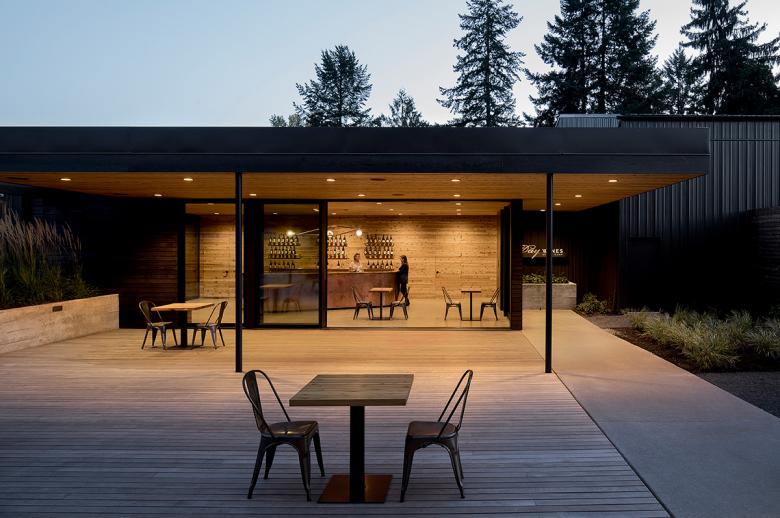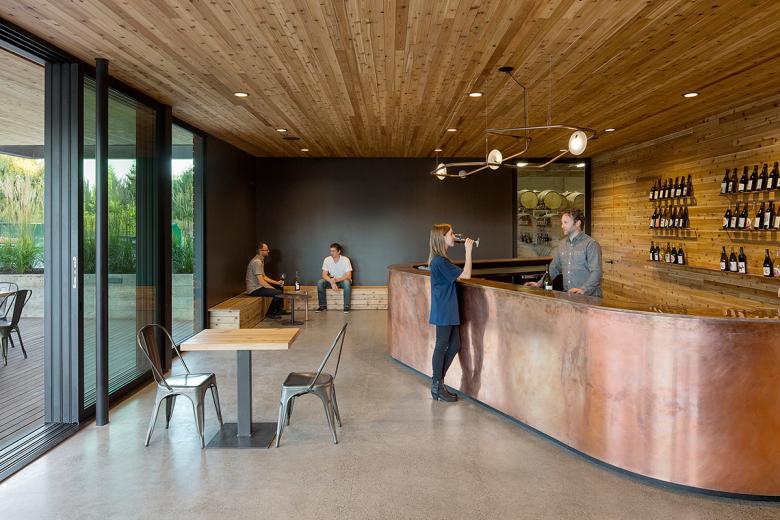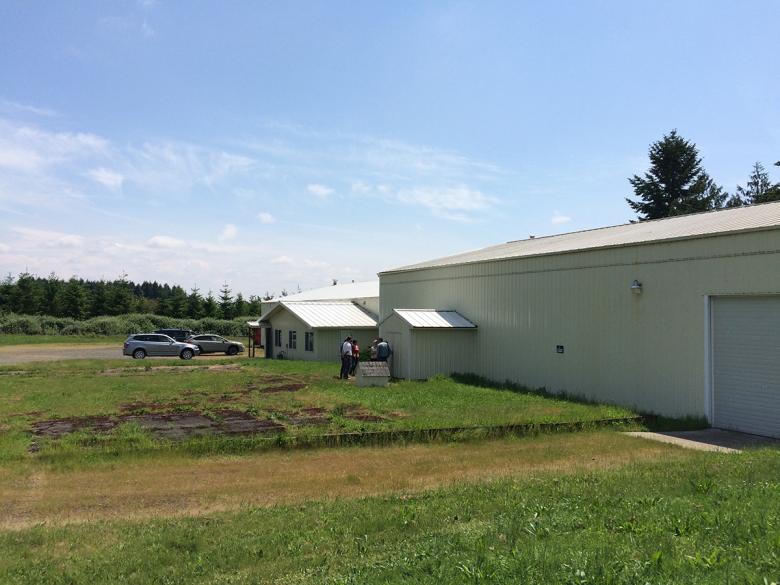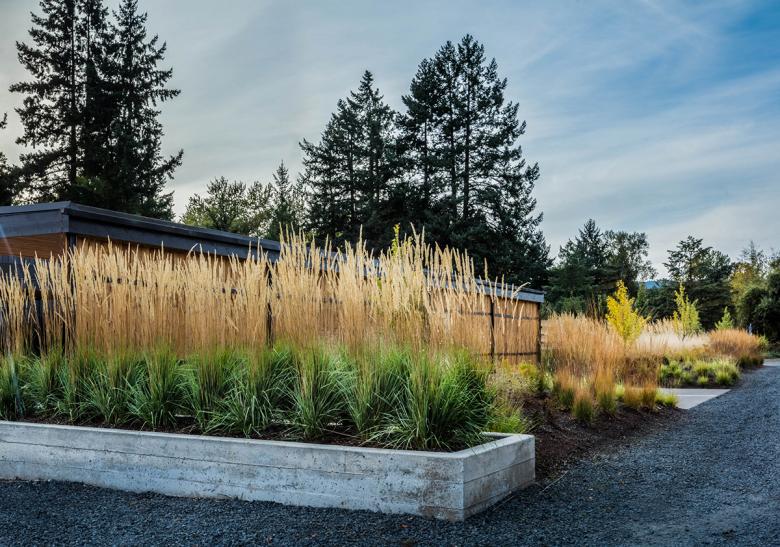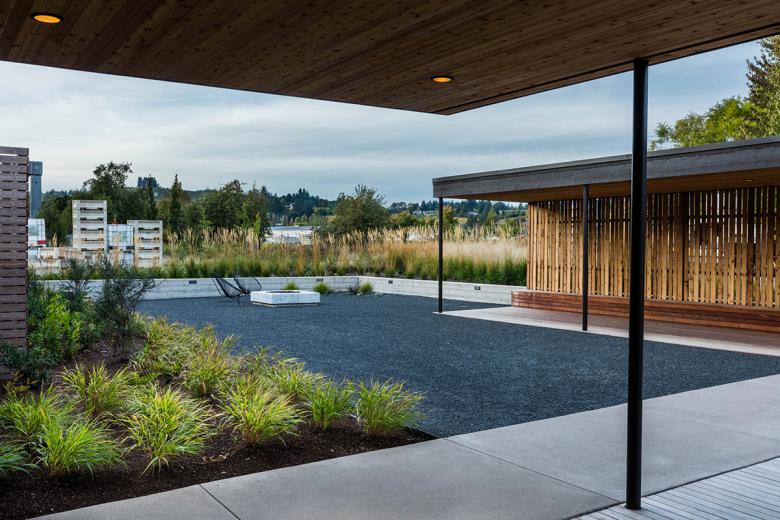Fieldwork Design & Architecture
Day Wines
Fieldwork Design & Architecture
4. 六月 2018
Photo: Jeremy Bittermann Photography
A former vitamin factory in Dundee, Oregon, has a new lease on life as a communal winemaking facility. Architecture and landscape work together to give the winery a strong sense of place, oriented about a new courtyard between the parking lot and the building. Fieldwork Design & Architecture sent us some text and images on the project.
Project: Day Wines, 2017
Location: Dundee, Oregon, USA
Client: Brianne Day
Architect & Interiors: Fieldwork Design & Architecture
Project Team: Cornell Anderson, Partner; Tonia Hein, Partner; Tim Fouch, Partner; Mariam Mollaghaffari, Architectural Staff
Landscape Designer: Lauren Hall-Behrens, Lilyvilla Gardens
Contractor: Cellar Ridge Construction
Landscape Contractor: Fernando Espinosa, Custom Yard Construction
Structural Engineer: Michael Munzing, Munzing Structural Engineering
Signage/Branding: Elaine Volpe, KEEL Creative
Building Area: 11,700 sf
Photo: Jeremy Bittermann Photography
Project Description
Fieldwork Design & Architecture
Located in Dundee, Oregon, in the heart of Oregon Wine Country, this 12,000-square-foot former vitamin factory off Highway 99 was transformed into a state of the art communal natural winemaking facility and tasting room for Day Wines and ten other winemakers.
Photo: Jeremy Bittermaann Photography
The design of the architecture and landscape and the materials selected are a reflection of the owner and natural winemaker, Brianne Day. Moving from the gravel parking lot to the winery, a covered loggia and vertical cedar screen, whose design is based on an unfolded wine barrel, enclose a courtyard and create a serene gathering space. The linearity of the architecture and landscape were inspired by vineyard planting, and carry from the courtyard into the cedar-clad tasting room. An organically shaped copper clad tasting bar greet visitors and large floor to ceiling sliding glass doors stack to flood the space with natural light while allowing the interior to flow seamlessly to the courtyard.
Photo: Jeremy Bittermaann Photography
Photo: Jeremy Bittermaann Photography
Photo: Jeremy Bittermaann Photography
Photo: Jeremy Bittermaann Photography
Photo: Jeremy Bittermaann Photography
Photo: Jeremy Bittermaann Photography
Before
Landscape Process and Key Concepts used in Landscape Design
Lilyvilla Gardens
When we first met Brianne Day, owner and winemaker at Day Wines, some key words and concepts rose to the top of our conversations; organic, natural, dynamic and unique—much like the natural wine Day creates.
Our process with Day and the architects, Fieldwork Design and Architecture, was collaborative. Highlighting the changing light on the property was a priority. We wanted the space to feel welcoming, relaxed, and unique. In selecting the plant palette, Day expressed interest in plants with kinetic energy, classical favorites such as roses, and plants with sculptural, unexpected forms.
Photo: Tim Acock Photography
It was important for us to create a sense of enclosure while also maximizing the view. We repeated coniferous trees — existing in the back of the property — and installed a mix of shrubs and perennial plantings along the hillside. The plantings obscure unwanted sight lines and prioritize the view corridor from the tasting room and courtyard gardens.
Photo: Tim Acock Photography
Around the courtyard, we chose a palette of soft textured plants installed in an undulating pattern. All plantings contrast and compliment the geometry of the architecture while also establishing an inner layer of enclosure. Grasses sway in the breeze, perennials lend a seasonal pop of color, and sculptural plants within the courtyard capture up-close attention — breaking the courtyard boundary and bringing people and plants more into enjoying the moment.
Photo: Tim Acock Photography
Photo: Tim Acock Photography
相关文章
-
Chiles House
on 2023/2/13
-
Furioso Vineyards
on 2019/3/4
-
Day Wines
on 2018/6/4
-
Laura’s Place
on 2017/12/4
